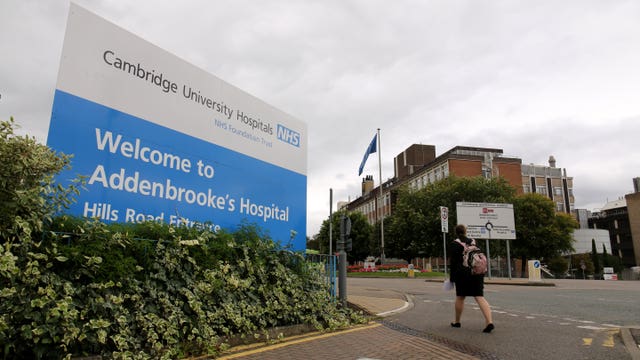
Shelagh Fogarty 1pm - 4pm
21 March 2025, 00:04

The method could result in more people with the condition being eligible for life-changing surgery.
A new technique involving ultra-powerful MRI scanners could help doctors identify tiny differences in the brains of people with treatment-resistant epilepsy that may have otherwise been missed, a trial has found.
The method could result in more people with the condition being eligible for life-changing surgery, medics said.
It is estimated that 630,000 people in the UK have epilepsy, with around 60% experiencing focal seizures, which begin in one specific area of the brain but can sometimes spread to other areas.
A third of those with focal epilepsy suffer persistent seizures despite being on medication, with surgery their only hope of a cure.
Surgeons use MRI scans to identify lesions on the brain that cause seizures, before operating to remove them.
Powerful 7T scanners, which have more than twice the magnetic field strength of conventional 3T scanners, provide more detailed image of the brain but are susceptible to “blackspots”.
Researchers likened this to “how single WiFi routers leave areas where you will struggle to get a signal”.

To overcome the issue, a team from the University of Cambridge’s Wolfson Brain Imaging Centre and the Universite Paris-Saclay developed a new technique known as “parallel transmit”, which involved using eight transmitters around the brain rather than just one.
Chris Rodgers, a professor of biomedical imaging at the University of Cambridge, said: “It used to be the case that MRI scanners used a single radio transmitter, but in a similar way to how single WiFi routers leave areas where you will struggle to get a signal, so these scanners would tend to leave blackspots on brain scans where it was hard to make out the relevant tissue.
“Now, by using multiple radio transmitters positioned around the patients’ head, like having a wifi mesh around your home, we can get much clearer images with fewer blackspots.
“This is important for the epilepsy scans because we need to see very precisely which part of the brain is misbehaving.”
The trial of the new technique, published in Epilepsia, involved 31 patients with drug-resistant epilepsy at Addenbrooke’s Hospital in Cambridge.
The parallel transmit technique revealed previously unseen lesions in the brains of nine patients.
It also confirmed suspected lesions in four patients which were picked up using 3T scanners, and showed suspected lesions could be disregarded in a further four patients.
The images generated using parallel transmit were clearer than conventional 7T scan images in more than half (57%) of cases.
As a result of the trial, some 18 patients had the management of their epilepsy changed.
Dr Thomas Cope, a consultant neurologist at Cambridge University Hospitals NHS Foundation Trust, added: “Having epilepsy that doesn’t respond to anti-seizure medications can have a huge impact on patients’ lives, often affecting their independence and their ability to maintain a job.
“We know we can cure many of these patients, but that requires us to be able to pinpoint exactly where in the brain is the root of their seizures.
“7T scanners have shown promise over the past few years since their introduction, and now, thanks to this new technique, more epilepsy patients will be eligible for life-changing surgery.”